Are We Smart Enough to Know How Smart Animals Are
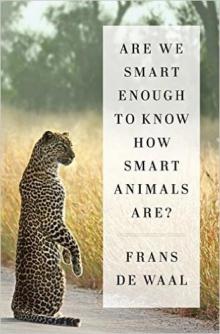

Author: Frans de Waal
Category: Other2
Published: 2016
Series:
View: 185
Read OnlineFrom world-renowned biologist and primatologist Frans de Waal, a groundbreaking work on animal intelligence destined to become a classic.
What separates your mind from an animal’s? Maybe you think it’s your ability to design tools, your sense of self, or your grasp of past and future―all traits that have helped us define ourselves as the planet’s preeminent species. But in recent decades, these claims have eroded, or even been disproven outright, by a revolution in the study of animal cognition. Take the way octopuses use coconut shells as tools; elephants that classify humans by age, gender, and language; or Ayumu, the young male chimpanzee at Kyoto University whose flash memory puts that of humans to shame. Based on research involving crows, dolphins, parrots, sheep, wasps, bats, whales, and of course chimpanzees and bonobos, Frans de Waal explores both the scope and the depth of animal intelligence. He offers a firsthand account of how science has stood traditional behaviorism on its head by revealing how smart animals really are, and how we’ve underestimated their abilities for too long.
People often assume a cognitive ladder, from lower to higher forms, with our own intelligence at the top. But what if it is more like a bush, with cognition taking different forms that are often incomparable to ours? Would you presume yourself dumber than a squirrel because you’re less adept at recalling the locations of hundreds of buried acorns? Or would you judge your perception of your surroundings as more sophisticated than that of a echolocating bat? De Waal reviews the rise and fall of the mechanistic view of animals and opens our minds to the idea that animal minds are far more intricate and complex than we have assumed. De Waal’s landmark work will convince you to rethink everything you thought you knew about animal―and human―intelligence.
32 illlustrations
**Review
“Thoroughly engaging, remarkably informative, and deeply insightful…. de Waal teaches readers as much about humankind as he does about our nonhuman relatives.” (Publishers Weekly)
“Amazing…. The clarity of [De Waal’s] writing makes for a highly readable book…. a trip to the zoo may never be the same.” (Kirkus)
“This is a remarkable book by a remarkable scientist. Drawing on a growing body of research including his own, de Waal shows that animals, from elephants and chimpanzees to the lowly invertebrates, are not only smarter than we thought, but also engaged in forms of thought we have only begun to understand.” (Edward O. Wilson, University Professor Emeritus, Harvard University)
“Are We Smart Enough to Know How Smart Animals Are? will completely change your perceptions of the abilities of animals. This book takes the reader on a fascinating journey of discovery into the world of animal problem-solving.” (Temple Grandin, author of Animals in Translation and Animals Make Us Human)
“A thoughtful, balanced argument…written simply enough for nonspecialists but with enough detail to engage academics who want a concise review of the field outside their own areas of expertise. The take-home message may be not only whether humans are smart enough to evaluate nonhuman intelligence, but also whether we are humble and open-minded enough to accept that humans may sometimes not be superior to the nonhumans with whom we share the world.” (Irene Pepperberg, author of Alex & Me: How a Scientist and a Parrot Discovered a Hidden World of Animal Intelligence―and Formed a Deep Bond in the Process)
“So, are we ‘smart enough to know how smart animals are?’ The question will occur to you many times as you read Frans de Waal’s remarkable distillations of science in this astonishingly broad-spectrum book. I guarantee one thing: readers come away a lot smarter. As this book shows, we are here on Planet Earth with plenty of intelligent company.” (Carl Safina, author of Beyond Words: What Animals Think and Feel)
“Frans de Waal’s groundbreaking research has long challenged scientists, philosophers, and theologians to rethink the place of humans in the natural world, showing that we aren’t the only species with strategic ‘political’ behavior, elements of empathy, a sense of justice, and high intelligence. Here he covers not only primates, but a much wider range of species, showing his unique ability to translate the latest findings into sparkling, accessible, provocative books for the thinking public.” (Robert Sapolsky, author of Why Zebras Don’t Get Ulcers)
“Frans de Waal brilliantly demonstrates through scientific evidence, inspiring stories, and common sense that we must fully appreciate the continuous evolutionary process that led to intelligence―understanding situations, reasoning, learning, emotional and empathic knowledge, communication, planning, creativity, and problem solving―and to other amazing cognitive skills that allow various species to best survive, each in their own way. A must for those who aspire to transcend the biases of both anthropocentrism and anthropodenial.” (Matthieu Ricard, author of Altruism: The Power of Compassion to Change Yourself and the World)
“You can’t help but get a sense that de Waal has placed another nail in the coffin of behaviorism. In animal after animal, de Waal shows the depths of their intelligence and triumphantly affirms that, yes, we are smart enough to see it, and the clues have been there all along.” (Gregory Berns, author of How Dogs Love Us)
“Engaging and provocative…de Waal illuminates the latest ideas and thinking about animal minds and emotions…. He challenges us to accept the ultimate findings of this research: Our mental skills are the product of evolution, and all animals from spiders to octopuses to ravens and apes are thinkers in their own ways. And he asks us perhaps the most daunting question of all: Are we really smart enough to understand the minds of other animals?” (Virginia Morell, author of Animal Wise: How We Know Animals Think and Feel)
About the Author
Frans de Waal has been named one of Time magazine’s 100 Most Influential People. The author of Our Inner Ape, among many other works, he is the C. H. Candler Professor in Emory University’s Psychology Department and director of the Living Links Center at the Yerkes National Primate Research Center. He lives in Atlanta, Georgia.
What separates your mind from an animal’s? Maybe you think it’s your ability to design tools, your sense of self, or your grasp of past and future―all traits that have helped us define ourselves as the planet’s preeminent species. But in recent decades, these claims have eroded, or even been disproven outright, by a revolution in the study of animal cognition. Take the way octopuses use coconut shells as tools; elephants that classify humans by age, gender, and language; or Ayumu, the young male chimpanzee at Kyoto University whose flash memory puts that of humans to shame. Based on research involving crows, dolphins, parrots, sheep, wasps, bats, whales, and of course chimpanzees and bonobos, Frans de Waal explores both the scope and the depth of animal intelligence. He offers a firsthand account of how science has stood traditional behaviorism on its head by revealing how smart animals really are, and how we’ve underestimated their abilities for too long.
People often assume a cognitive ladder, from lower to higher forms, with our own intelligence at the top. But what if it is more like a bush, with cognition taking different forms that are often incomparable to ours? Would you presume yourself dumber than a squirrel because you’re less adept at recalling the locations of hundreds of buried acorns? Or would you judge your perception of your surroundings as more sophisticated than that of a echolocating bat? De Waal reviews the rise and fall of the mechanistic view of animals and opens our minds to the idea that animal minds are far more intricate and complex than we have assumed. De Waal’s landmark work will convince you to rethink everything you thought you knew about animal―and human―intelligence.
32 illlustrations
**Review
“Thoroughly engaging, remarkably informative, and deeply insightful…. de Waal teaches readers as much about humankind as he does about our nonhuman relatives.” (Publishers Weekly)
“Amazing…. The clarity of [De Waal’s] writing makes for a highly readable book…. a trip to the zoo may never be the same.” (Kirkus)
“This is a remarkable book by a remarkable scientist. Drawing on a growing body of research including his own, de Waal shows that animals, from elephants and chimpanzees to the lowly invertebrates, are not only smarter than we thought, but also engaged in forms of thought we have only begun to understand.” (Edward O. Wilson, University Professor Emeritus, Harvard University)
“Are We Smart Enough to Know How Smart Animals Are? will completely change your perceptions of the abilities of animals. This book takes the reader on a fascinating journey of discovery into the world of animal problem-solving.” (Temple Grandin, author of Animals in Translation and Animals Make Us Human)
“A thoughtful, balanced argument…written simply enough for nonspecialists but with enough detail to engage academics who want a concise review of the field outside their own areas of expertise. The take-home message may be not only whether humans are smart enough to evaluate nonhuman intelligence, but also whether we are humble and open-minded enough to accept that humans may sometimes not be superior to the nonhumans with whom we share the world.” (Irene Pepperberg, author of Alex & Me: How a Scientist and a Parrot Discovered a Hidden World of Animal Intelligence―and Formed a Deep Bond in the Process)
“So, are we ‘smart enough to know how smart animals are?’ The question will occur to you many times as you read Frans de Waal’s remarkable distillations of science in this astonishingly broad-spectrum book. I guarantee one thing: readers come away a lot smarter. As this book shows, we are here on Planet Earth with plenty of intelligent company.” (Carl Safina, author of Beyond Words: What Animals Think and Feel)
“Frans de Waal’s groundbreaking research has long challenged scientists, philosophers, and theologians to rethink the place of humans in the natural world, showing that we aren’t the only species with strategic ‘political’ behavior, elements of empathy, a sense of justice, and high intelligence. Here he covers not only primates, but a much wider range of species, showing his unique ability to translate the latest findings into sparkling, accessible, provocative books for the thinking public.” (Robert Sapolsky, author of Why Zebras Don’t Get Ulcers)
“Frans de Waal brilliantly demonstrates through scientific evidence, inspiring stories, and common sense that we must fully appreciate the continuous evolutionary process that led to intelligence―understanding situations, reasoning, learning, emotional and empathic knowledge, communication, planning, creativity, and problem solving―and to other amazing cognitive skills that allow various species to best survive, each in their own way. A must for those who aspire to transcend the biases of both anthropocentrism and anthropodenial.” (Matthieu Ricard, author of Altruism: The Power of Compassion to Change Yourself and the World)
“You can’t help but get a sense that de Waal has placed another nail in the coffin of behaviorism. In animal after animal, de Waal shows the depths of their intelligence and triumphantly affirms that, yes, we are smart enough to see it, and the clues have been there all along.” (Gregory Berns, author of How Dogs Love Us)
“Engaging and provocative…de Waal illuminates the latest ideas and thinking about animal minds and emotions…. He challenges us to accept the ultimate findings of this research: Our mental skills are the product of evolution, and all animals from spiders to octopuses to ravens and apes are thinkers in their own ways. And he asks us perhaps the most daunting question of all: Are we really smart enough to understand the minds of other animals?” (Virginia Morell, author of Animal Wise: How We Know Animals Think and Feel)
About the Author
Frans de Waal has been named one of Time magazine’s 100 Most Influential People. The author of Our Inner Ape, among many other works, he is the C. H. Candler Professor in Emory University’s Psychology Department and director of the Living Links Center at the Yerkes National Primate Research Center. He lives in Atlanta, Georgia.
 The Witch’s Enchanted Alien
The Witch’s Enchanted Alien Beautiful Soldier: A Dark High School Romance (The Heights Crew Book 3)
Beautiful Soldier: A Dark High School Romance (The Heights Crew Book 3)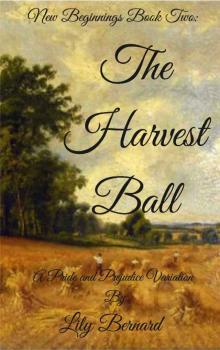 The Harvest Ball
The Harvest Ball Deadly Evidence
Deadly Evidence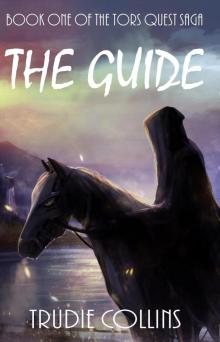 The Guide
The Guide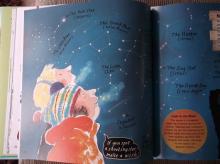 Wild Adventures round the Pole
Wild Adventures round the Pole Spider Lake
Spider Lake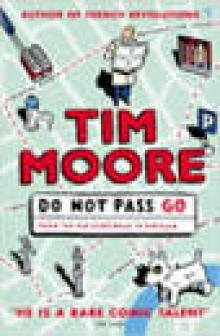 Do Not Pass Go
Do Not Pass Go